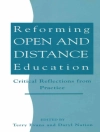“Outstanding … A rich, hopeful, and indispensable guide [that] shows us how the world could be borderless, flourishing, free” —Luke de Noronha, co-author, Against Borders: The Case For Abolition
“Groundbreaking. This is learning at its most powerful, reframing thinking and activism with the aim of building justice” —Bridget Anderson, Professor, University of Bristol
Borders must be abolished. Borders produce and are produced by carceral, racist, classist, sexist, and xenophobic regimes. Border Abolition Now demands transformative politics to dismantle these systems of oppression.
Taking the key tenets of abolitionism and applying them to the debate around borders, the contributors bring a rich understanding of the history and context of carceral and policing systems. Heralding from different countries, disciplines, and activist struggles, they show how their theories are being realized through feminist decolonial praxis, and how personal experiences of borders and organizing against them inform abolition.
Expanding the debate to areas including asylum, detention camps, mobility, and climate change, Border Abolition Now offers new tools for anyone working to defend freedom of movement for all.
Sara Riva is a Marie Skłodowska-Curie Research Fellow at the Spanish National Research Council and the University of Queensland. Simon Campbell is an activist-researcher focusing on border infrastructures, state violence and abolitionist struggles against the border regime. Brian Whitener is an Associate Professor of Spanish at the University at Buffalo and author of Crisis Cultures: The Rise of Finance in Mexico and Brazil. Kathryn Medien is a Lecturer in Sociology at The Open University.
Mục lục
1. Introduction by the editors
Part I: An Opening Constellation
2. #Abolish ICE, #Abolish Frontex, Abolish Borders: Toward an abolitionist border studies by Josue David Cisneros (University of Illinois Urbana-Champaign)
3. Interview with a woman who was detained in Nauru
4. Between solidarity and abolition: interrelation between the Alarm Phone’s daily work and abolitionist struggles by Watch The Med Alarm Phone–Research and Documentation Team
Part II: Constellations of Resistance
5. Connecting struggles against police and borders by Tom Kemp (Nottingham University) and Phe Amis (Goldsmiths University)
6. Camps as sites of border struggles: Spatial control and everyday movement by Simon Campbell (Border Violence Monitoring Network) and Sara Riva (Marie Skłodowska-Curie Research Fellow, Spanish Research Council and the University of Queensland)
7. Defending the Debris of the Empire at Ceuta & Melilla Borders: Coloniality of Violence, Performances of Whiteness & Production of Blackness by Elsa Tyszler (Center for Sociological and Political Research in Paris, CRESPPA-CNRS)
8. Humanitarianism, racialisation, and the production of a surplus humanity by Francesco Marchi (Centre for Postcolonial and Gender Studies, University of Naples “l’Orientale”)
Part III: Neoliberal Constellations
9. Fixes, Flows: Financialising Detention, Racial Capitalism and Migrant Fungibility by Lauren Martin (Durham University)
10. Tech and Border Abolition: The case of electronic monitoring as an ‘alternative’ to detention in the USA by Carolina Sanchez Boe, Aarhus University (affiliated to CERLIS, Université de Paris and SADR, City University of New York)
11. When are ‘Alternatives’ not ‘Alternatives’? A critical exploration of ‘Alternatives to Detention’ in the UK by Lauren Cape-Davenhill (School of Geography, University of Leeds (ESRC funded Ph D student) and former These Walls Must Fall Organiser)
Part IV: Old Problems, New Constellations
12. Border abolition from a borderlander perspective by Josiah Heyman (University of Texas at El Paso)
13. Mobility, Social Reproduction, and Non-Aligned Solidarities by Brian Whitener (University of South Alabama)
14. Challenging borders through a feminist lens: abolitionist experiences and imaginaries by Anna Carastathis (Feminist Autonomous Research Centre in Athens), Leah Cowan, Francesca Esposito (Institute of Social Science, University of Lisbon), Sarah Hopwood (Teesside University), Aminata Kalokoh (Border Criminologies at University of Oxford), Vania Martins (SOAS, University of London and IC member at the World March of Women), Ellie Shakiba (co-director and executive producer of ‘Searching for Aramsayesh Gah’), & Myrto Tsillimpounidi (Feminist Autonomous Research Centre in Athens)
Giới thiệu về tác giả
Kathryn Medien is a Lecturer in Sociology at The Open University. Her research draws on feminist and anti-colonial social theory to explore the colonial and imperial politics of state violence and resistance to it. She has been published in the Sociological Review, Theory, Culture and Society, Current Sociology and the International Feminist Journal of Politics.












